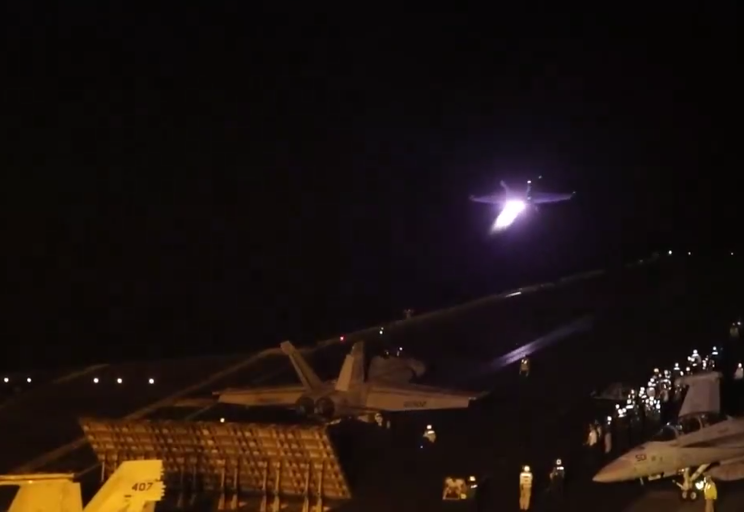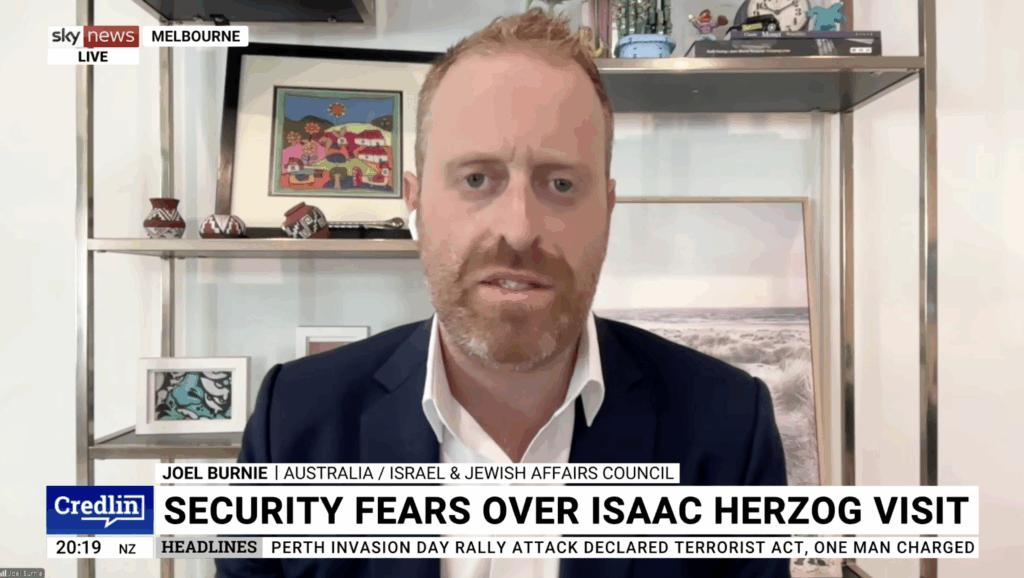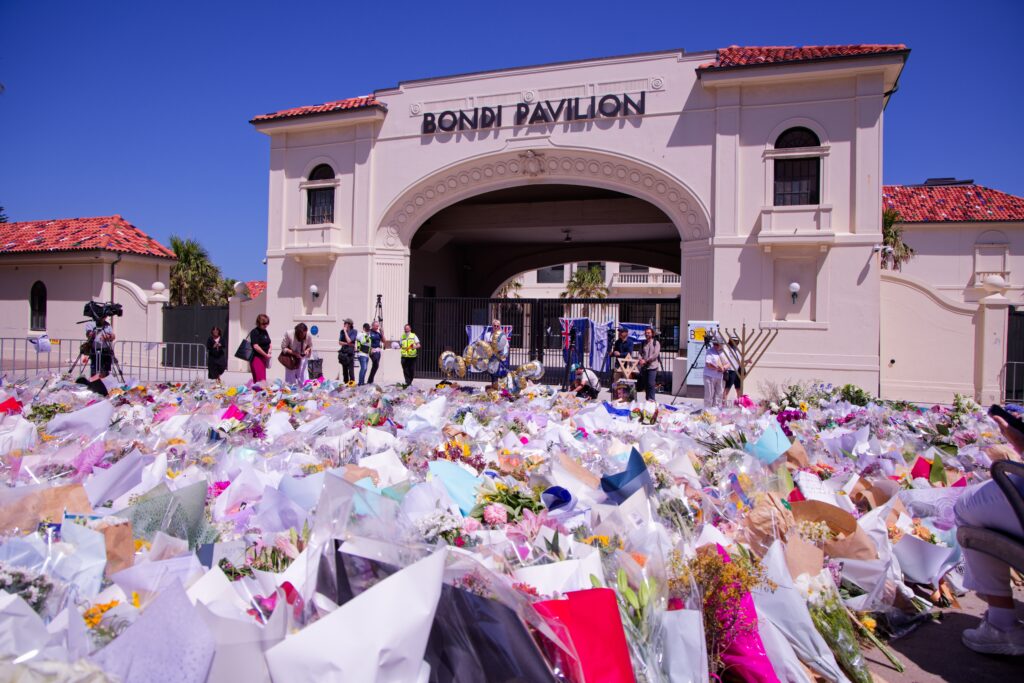IN THE MEDIA
Sanctions can no longer be the sole response to Tehran’s blatant provocations
January 21, 2024 | Oved Lobel

The Australian – 20 January 2024
What do the following have in common: war against Hamas in Gaza; an upgraded, jet-powered Iranian-designed loitering munition being shot down in Ukraine; countless anti-ship ballistic and cruise missile attacks from Yemen against international shipping and US naval assets; hostage-taking and piracy; a rapidly advancing illegal nuclear program; daily attacks from Lebanon and occasionally Syria against Israel; as well as more than 100 rocket and drone attacks against US and allied forces in Iraq and Syria?
The answer is that they all can be seen in part as the result of Western appeasement of the Islamic imperialist regime that rules Iran and, from there, dominates Lebanon, most of Yemen, Iraq, Syria and Gaza.
As former US Central Command chief Kenneth McKenzie recently wrote in the Wall Street Journal: “Iranian leaders work with Lenin’s dictum that ‘you probe with bayonets: if you find mush, you push. If you find steel, you withdraw.’ Tehran and its proxies are pressing their attacks because they haven’t confronted steel.”
The primary problem is that Western nations view their own kinetic action, whether sabotage, assassinations or airstrikes directed against Iranian assets, as tantamount to war, but do not apply this same standard to the Iranian regime’s incessant and unprovoked military attacks against Western and allied forces and citizens.
Every one of these Iranian attacks warrants a direct military response, not least for the sake of basic deterrence, yet the response until this week has been limited.
While desultory and ineffective sanctions are occasionally imposed against various Islamic Revolutionary Guard Corps (IRGC) operatives, facilitators and other entities involved in proliferation and attacks, even that has been a stretch for some states.
Australia, for instance, hasn’t imposed sanctions on Iran for several months. More often than not, the Iranian regime’s violent actions result in no consequences at all, and sometimes even win diplomatic concessions. It therefore makes perfect sense for decision-makers in Tehran to continue to escalate.
The IRGC unveiled the Shahed-238, a jet-powered variant of its Shahed-136 “kamikaze drone”, in September last year yet it already seems to be in Russia’s possession. Work on a joint factory inside Russia to produce thousands of such drones to attack Ukraine is proceeding apace, while Iran continues to provide Russia with other vital artillery and small arms ammunition and additional drones. Iran also reportedly is going ahead with sales of ballistic missiles to Russia.
The US and its allies could easily disrupt this arms trade via air and sea interdiction, airstrikes and sabotage but instead have chosen to do nothing. Australia has not even imposed any sanctions on Iran for its material support of Russia’s war against Ukraine since March 20 last year.
In Yemen, the Houthis, effectively a branch of the IRGC like their Lebanese Hezbollah and Iraqi and Syrian militia counterparts, have been launching nearly daily attacks – using Iranian-supplied munitions – against Israel, US naval assets and international shipping as part of the Iranian regime’s jihad against Israel and the West.
After 27 Houthi attacks, the US and Britain finally retaliated on January 11, striking more than 60 targets in two waves of airstrikes. There have since been additional US strikes in response to continued Houthi missile and drone attacks, and the US has moved to relist the group as a terrorist organisation. This is a good first step, but these strikes should have taken place after the first attack, without hours of public warning. They should become the norm in response to every missile or drone launched by the Houthis.
Moreover, the address for future strikes needs to include IRGC and regime targets inside Iran to have real deterrent value.
The more than 100 attacks against US forces in Iraq and Syria by the IRGC also have prompted little in the way of kinetic retaliation. Although the US has killed a low-tier leader and several operatives of some of the IRGC’s Iraqi front groups, so far it effectively has sent a message that it is not willing to respond in any substantial way, even to direct attacks on US forces.
The relative lack of kinetic action until now has been especially egregious because it suggested the recent substantial deployment of US military assets to the region and Washington’s public warnings to Iran and its proxies not to get involved in the war in Gaza were essentially a bluff. Whatever deterrent value those deployments may have had were called into question.
Meanwhile, Iran’s nuclear weapons program is rapidly expanding. Barring substantial strikes on Iran’s nuclear facilities or a regime collapse, there is nothing that can be done to halt it now. If and when the regime decides to build a nuclear weapon, these escalatory trends will increase exponentially.
If nobody is willing to respond to blatant provocations when Iran does not have nuclear weapons, they certainly will not do so once it does.
It is long past time for Western nations to recognise that appeasement of Iran has failed. The regime is at war with them, whether they wish to be at war with Iran or not. Sanctions cannot be the sole response to decades of terrorism, piracy, hostage-taking, arms proliferation and wars of aggression against the US-led international order. In Tehran, sanctions without a substantial kinetic component are interpreted as mush.





